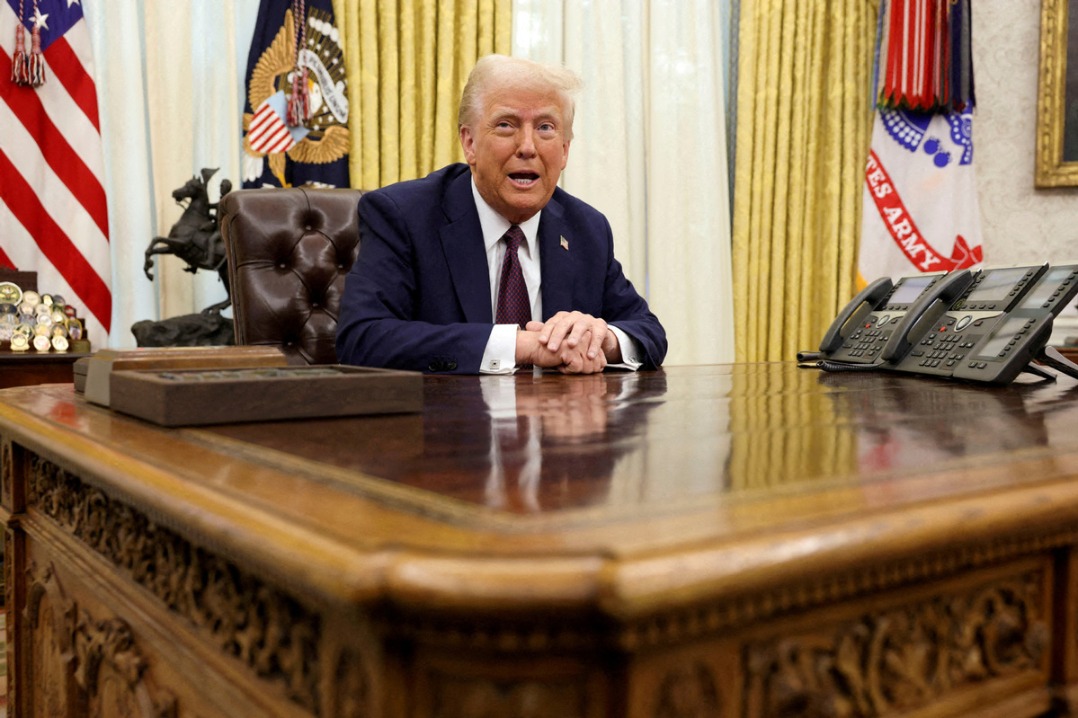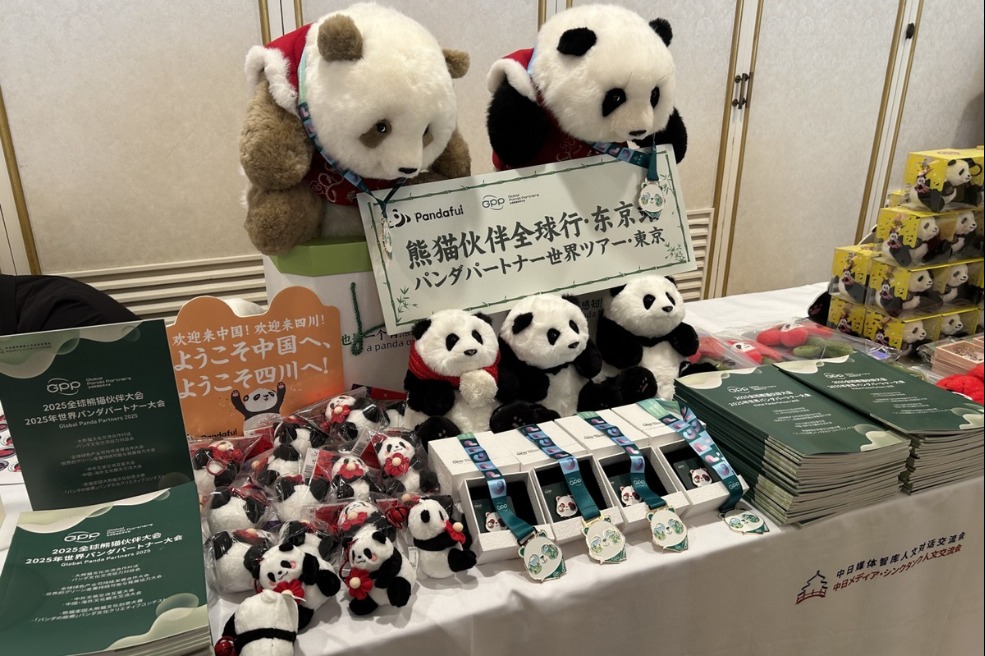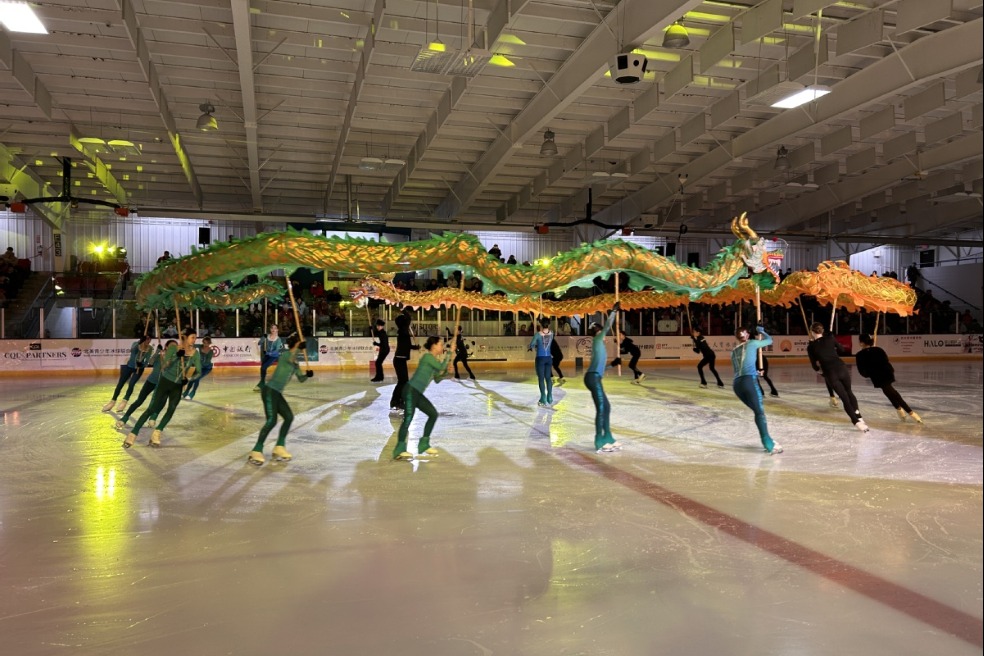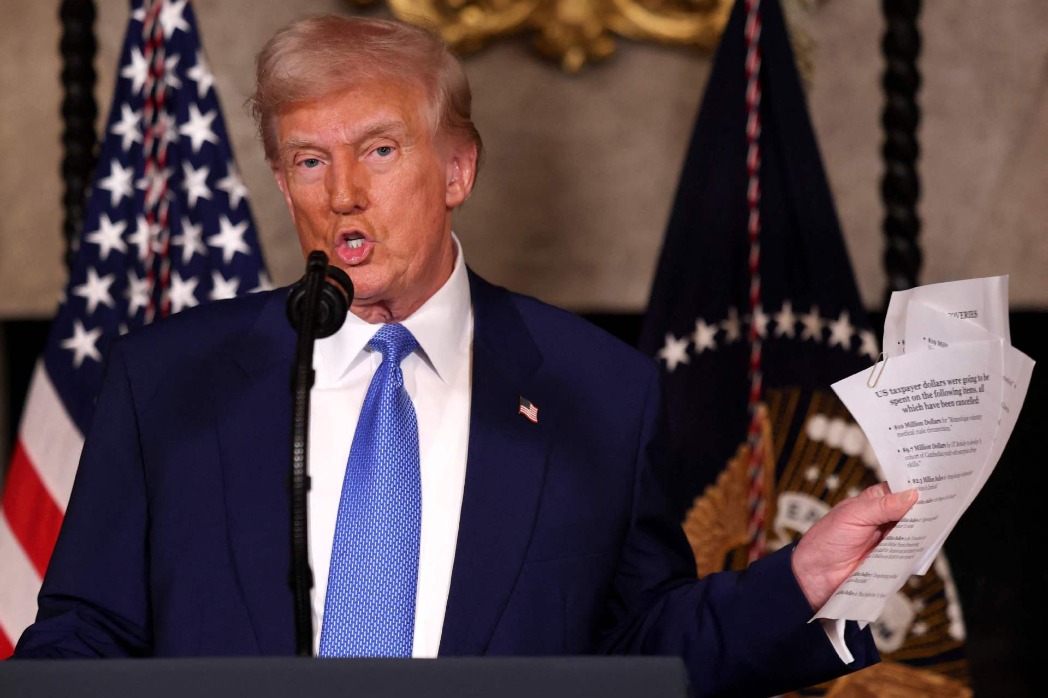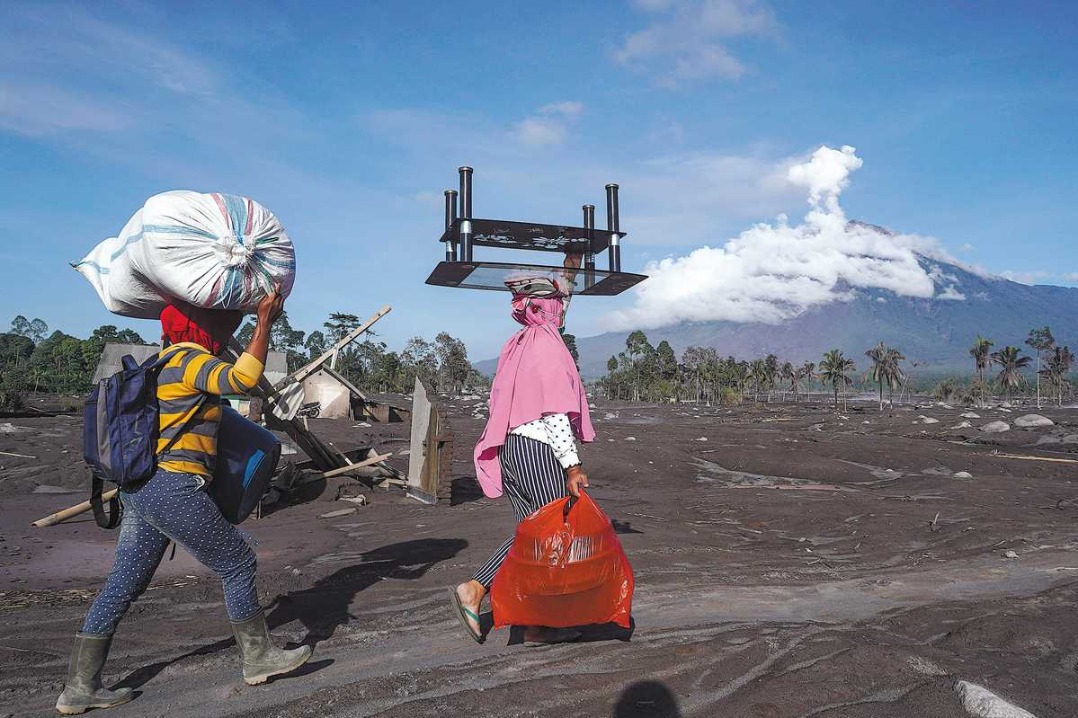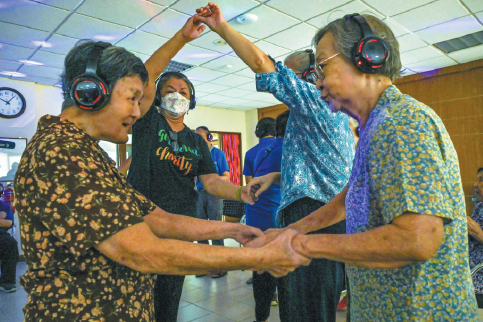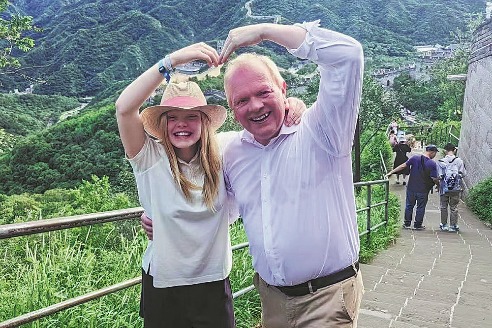Artificial attraction
Beauty pageant for 'Miss AI' could be setting inhuman societal standards

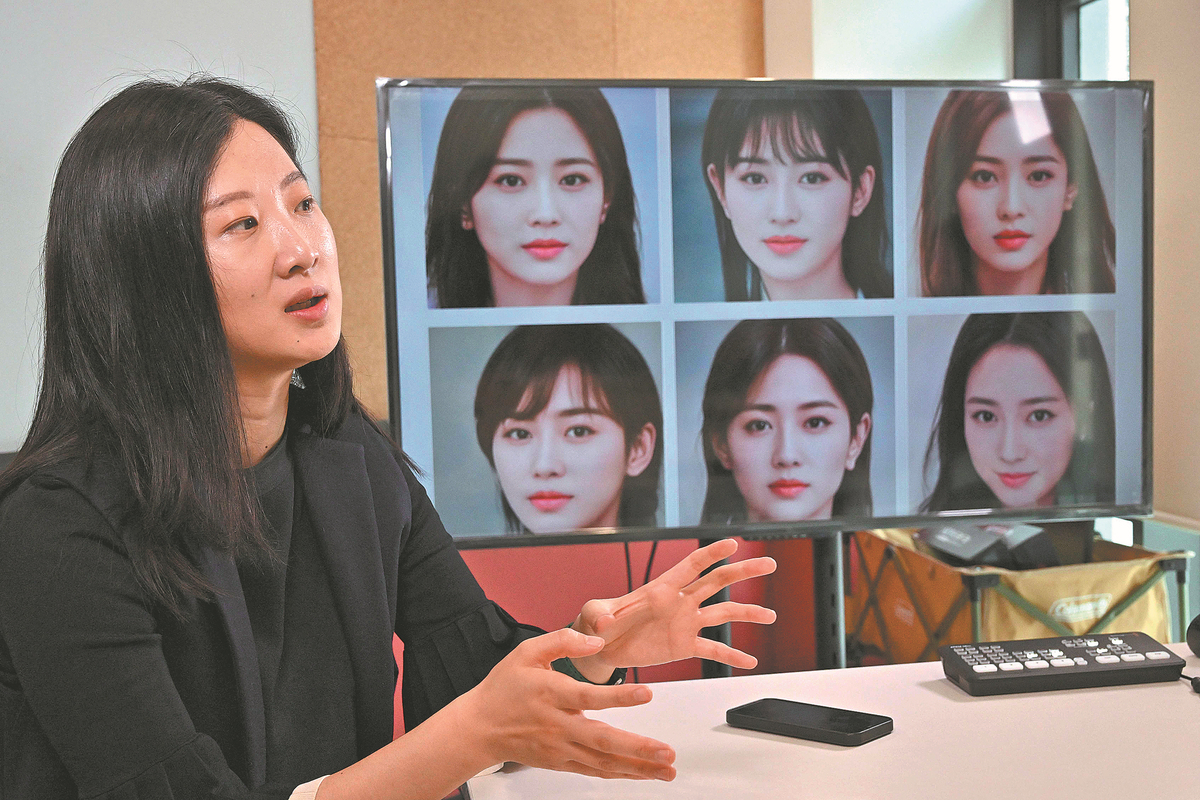
Editor's note: In this weekly feature China Daily gives voice to Asia and its people. The stories presented come mainly from the Asia News Network (ANN), of which China Daily is among its 20 leading titles.
While beauty pageants have been around for about 200 years, a first of its kind pageant has recently emerged — Miss AI, the world's first beauty pageant for artificial intelligence-generated influencers and models.
Created by the World AI Creator Awards in partnership with Fanvue, a subscription platform that hosts virtual models, the pageant was open for AI creators over the age of 18 to submit their models under the following criteria earlier this year — they must be 100 percent AI-generated and a social media influencer.
The pageant has a panel of four judges, two human and two AI. They are co-founder of the PR agency Frank, Andrew Bloch, alongside Miss Great Britain judge and "beauty pageant historian" Sally-Ann Fawcett, as well as AI models Aitana Lopez and Emily Pellegrini, who both boast Instagram followings of over 200,000 each.
Contestants will be given points based on their beauty, tech and social clout. Beauty points are awarded like in every pageant, based on their conventional beauty and ability to answer questions with maturity and sophistication. However, it is worth considering that all the models were specifically designed to meet (and exceed) all modern day beauty standards so that category will not be hard to score in.
The details, quality and realism of the model and use of AI tools are also vital to win points, especially since AI is known to have little but noticeable flaws, like a sixth finger or extra teeth. To win, contestants will have to look as human-like and realistic as possible.
Lastly, the consistency of their social media engagement with fans, their following growth rate, as well as how they are using their platforms are what earn contestants points in the social clout category.
The contestant with the most points total is crowned Miss AI and the creator wins $5,000 in cash and $8,000 worth of PR support, programs and mentorship.
To the surprise of many, the pageant received over 1,500 applicants before they sorted it down to a shortlist of 10.
Creators curate characters that would traditionally fit in the pageant setting, although they have the advantage of their models being 100 percent AI-generated, meaning they can take unattainable beauty standards to any extent.
Apart from generally looking good and being conventionally attractive, AI models and influencers are the perfect candidates for product endorsement and promotion for three reasons: they are scandal free, they do not age, they cannot get ill or injured, and they can be reprogrammed to speak any language.
Despite his AI model Zara Shatavari being inanimate, co-founder of digital marketing agency Digimozo and AI creator Rahul Choudhry has made her a symbol for women battling afflictions like depression. She also regularly shares advice and experiences on social media, as well as commentaries on women's healthcare in India; this being one of the reasons Zara qualified for the shortlist.
Much like Zara, many of the other contestants have their activism cited as one of the reasons they were shortlisted.
Kenza Layli strives to promote a society of empowered Moroccan women and was praised by the judges for her ability to tie a larger international audience to her cause, through her 196,000 followers on Instagram.
French influencer Anne Kerdi partnered with the organization Oceanopolis to promote ocean conservation and, as believed by Bloch, was "a brilliant example of the positive influence AI creators can have on an audience".
This trend of using AI influencers not only as role models in a physical sense, but also personally, suggests they may be the future of marketing, especially as their reach and popularity are heightened by events such as Miss AI.
However, this pageant has opened up a far broader conversation around AI influencers and just AI in general.
This idea of virtual public figures can be traced back to 1997, when Japan debuted the first virtual pop star Kyoto Date. Since then, the world has seen an unforeseen rise in virtual and AI-generated characters becoming influencers or brand endorsers.
As of now, the most followed AI influencer is Lu, who was created by Brazilian retail company Magalu for marketing, and has garnered over 30 million followers across her social media platforms. Over the years, her work for Magalu and other partnerships resulted in about $550 million of profit in 2019.
Another example would be the American AI influencer Miquela, who has over 2 million followers on Instagram and has worked with Bella Hadid, a real-world model, to promote the Calvin Klein brand.
South Korean agency Metaverse Entertainment took it a step further and created an 11-member K-pop girl group designed using motion capture technology and deepfakes, or video and other digital representation made by sophisticated machine-learning techniques that produce seemingly realistic but fabricated, images and sounds. Named IITERNITI, the group debuted in 2021 with their ironic song I'm Real. While IITERNITI has yet to take part in any brand endorsements or marketing, the growing popularity of virtual influencers and celebrities rings true.
Considering the notable progress that has been made in the world of AI influencers, concerns have arisen about how much AI should be integrated into certain aspects of society.
When asked about his take on the ongoing debate surrounding AI usage, AI creator Rahul Choudhry commented: "AI is here to help humans, and Zara's purpose is to spread awareness. She has a celebrity-like aura because we noticed people tend to follow celebrities and join their causes."
That celebrity-like aura does have other effects on audiences as well, such as lower self-esteem and envy. The depiction of conventionally attractive women that were crafted by technology would simply reinforce the toxic beauty standards that have terrorized women for centuries. While their activism and awareness have their benefits, AI influencers may have set society back in terms of body positivity and confidence.
If what creators truly want is to help people connect and raise awareness, an AI-generated, skinny, Euro-centric character is not the way to do it. To this day, what many corporations fail to realize is the value in promoting role models that can represent different demographics because people want to see real people who look like them, have a similar life to them, and have experienced relatable struggles; someone they can empathize with.
In a conversation with media group Forbes, facial plastic surgeon Jennifer Levine said: "AI has the ability to help us stay looking our most youthful by making small changes that are done precisely and regularly that will alter the way we age … We're being exposed to highly altered images and people are beginning to view these as beauty standards. I think that in the future more people will be calling out these images and hopefully not allowing them to be used."
Even though there is a creator, or even team, behind the AI influencer carefully curating a personality and image, to a certain extent cowering behind a perfectly designed character reinforces the idea that you need to look like that to be desirable or to be heard.
For decades, real-life beauty pageants have been criticized for their objectification and lack of body diversity, supporting toxic beauty standards and the world's perception of beauty. In the case of AI pageants, these issues only worsen because they are not real, making their appearance genuinely unattainable and damaging young women's idea of beauty.
A better way forward would be giving these powerful platforms to real people with real struggles to fight for their own causes, and promote products for humans to humans.
Dawn

















